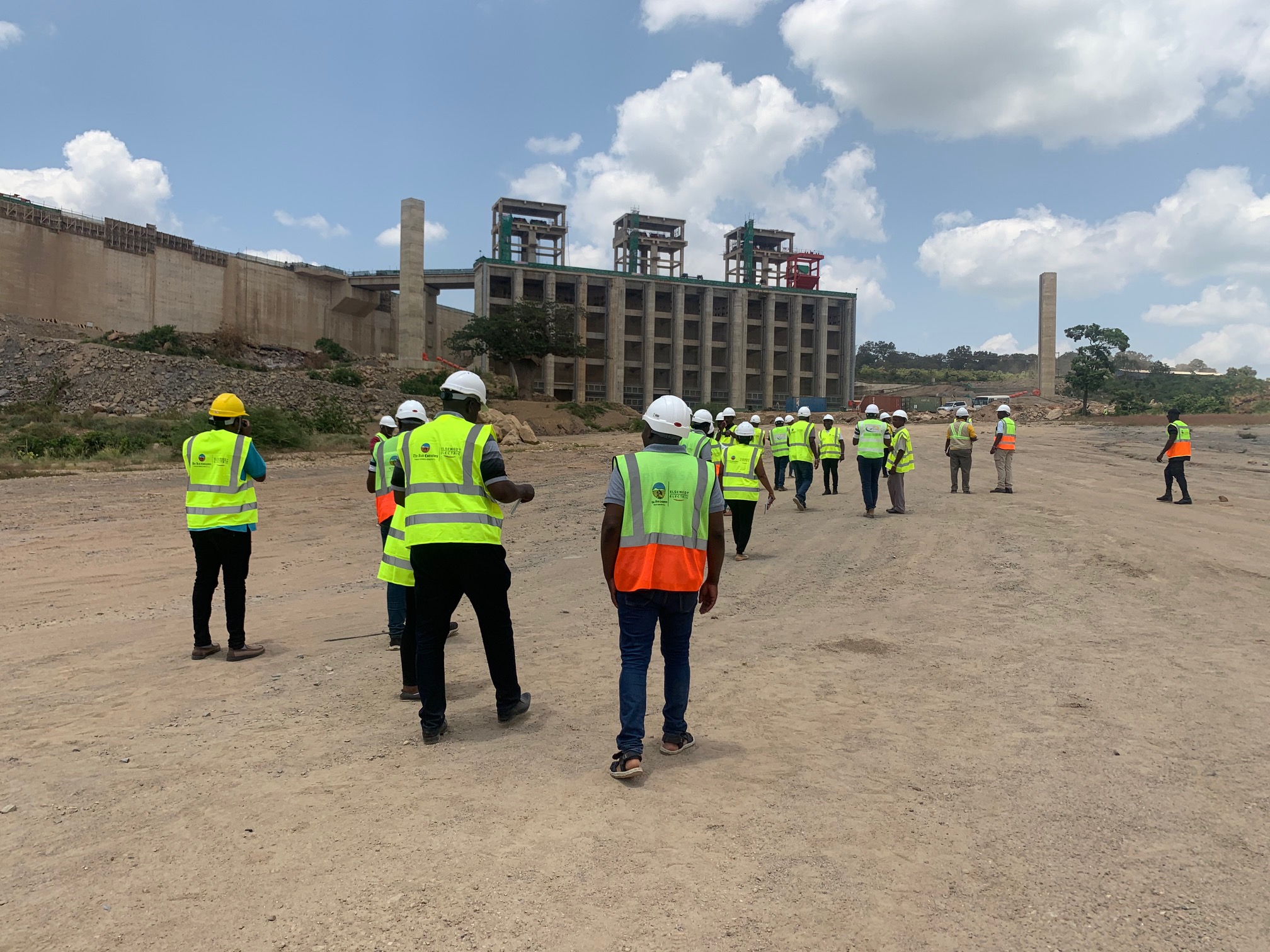Citizens in the Southern Highlands of Tanzania have been urged to halt human activities within the water sources and rivers so that the country benefits from the Julius Nyerere Hydropower Project which is amongst the large national strategic project by ensuring sustainable river flows through implementation of Nature based Solutions (NbS).

This was echoed by the Coordinator of Research and Publications from the Sokoine University of Agriculture (SUA) who is also a Principal Researcher for the Environmental Flows Assessment Project, being implemented by SUA and the National Environment Management Council (NEMC) through the Vice President Office, Prof. Japhet Kashaigili when he visited the Julius Nyerere Hydropower Project (JNHPP) and also share finding from their ongoing research.
"Let's take care of our water sources and rivers and implement nature based solutions by planting natural water conserving trees and grasses within the buffers of the water sources and rivers, implement soil-water conservation farming practices, introduce environmental friendly income generating activities such as beekeeping, perennial fruit trees, initiate Carbon project to all conserved water sources and rivers as a way of improving incomes to all parties (e.g. Water User Associations (WUAs)) undertaking water conservation activities, graze productively and stop watering livestock at the water sources instead built water trough away from the water sources and rivers, all these must be done with an ultimate goal of improving water quantity and quality through reduction of impacts from land based sources and activities", said Prof. Kashaigili.
Furthermore, Prof. Kashaigili elucidated that all these are a result of their ongoing research to provide scientific evidence that will enable eradication or reduction of impacts/stress from land-based sources and activities in order to have safe flowing water that will support the national development agenda in particular the large strategic projects such as the Julius Nyerere Hydropower Project.
And the Director of the Rufiji Basin Water Board Mr. Florence Mahay said that it seemed obvious that in order for the dam to get full, the use of water must be coordinated because any activity that takes water from the same rivers reduces the flow of water flowing into the Julius Nyerere Hydropower Project.

"The board will continue to work with various stakeholders to ensure that the regulations pertaining water use are enforced because we have a plan to hire river guards who will be making sure that only those who use water have a permit and ensure that no one damages our water sources", said Mahay.
The Julius Nyerere Hydropower Project costs TZS 6.5 trillion. It will produce 2,115 megawatts that will increase power in the 1,500 megawatts that are powered by various current sources and will enable Tanzania to be self-sufficient in its electricity needs and sell to neighboring countries along with reducing electricity costs for Tanzanians.




